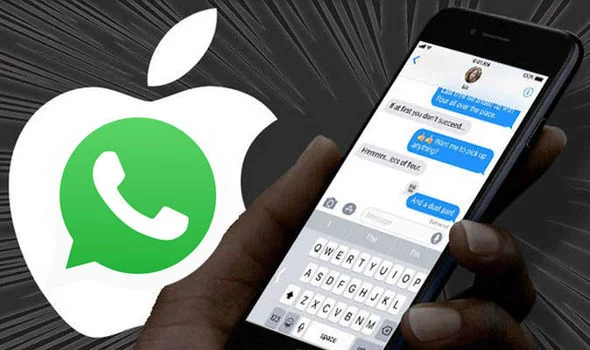The Article Tells The Story of:
- Apple’s RCS messaging update was set to kill SMS and rival WhatsApp—but now faces major threats.
- FBI warnings exposed weak encryption between iPhones and Androids.
- Chinese gangs exploit RCS to send millions of scam texts daily.
- Google’s ad-filled RCS rollout turns texts into spam, and iPhones are next.
Apple Adds RCS to iPhone Messaging
Apple and Google have made a major move. Their new update brings RCS messaging to iPhones, aiming to fix the security issues between Android and iPhone users. For years, messages between iPhones were encrypted through iMessage. But when iPhone users texted Android users, those messages switched to old SMS or MMS, which lacked full security.
That gap made headlines when the FBI warned users about sending unencrypted texts. The warning came after Chinese hackers breached U.S. networks. It exposed how unprotected cross-platform messages remained a big problem. Even as iMessage and Google Messages supported encryption internally, cross-device chats were vulnerable.
Now, Apple is updating its default messaging system. The new system supports RCS—Rich Communication Services. Google had already adopted RCS for Android devices. This update will allow iPhones to match that level. Once GSMA finalizes end-to-end encryption within the RCS standard, Android-to-iPhone messages will be fully secure.
That move creates a real alternative to WhatsApp. For the first time, users can send encrypted messages without installing third-party apps. And with Meta forcing AI tools into WhatsApp, Apple and Google had a strong chance to shift users away from it. But just as the shift gained momentum, two major problems with RCS appeared.
Read More About Our Article of WhatsApp’s New Features Make Messaging, Calls, and Channels Smarter Than Ever Published on April 13, 2025 SquaredTech
RCS Security Is Still a Problem
The biggest risk facing RCS is security. Apple’s goal was to improve safety for users. But RCS has now become a tool for criminals. Cybersecurity firm Resecurity reports that criminal gangs in China are using RCS to launch large-scale text attacks. These criminals prefer RCS over SMS because RCS allows rich media formats. That makes scams more believable and harder to detect.
According to Resecurity, some attacks now send up to 2 million messages a day. That’s enough to hit every U.S. citizen more than once each year. The report says cybercriminals use the same tools that appeal to users—emojis, images, clickable links, and interactive buttons. These features help attackers craft fake alerts or promotions that look real.
This danger comes just as Apple and Google push RCS as a secure messaging option. But if criminals continue to exploit it, the public may avoid it altogether. Security cannot be a selling point if the platform is a magnet for fraud.
Spam Ads Threaten the User Experience
Security is not the only problem with RCS. The second issue is advertising. Google has added business messaging to RCS, which allows companies to send promotional content through the same app people use for regular texts. That creates a mix of personal and commercial messages.
Android users have already complained about this. Now, as iPhones adopt RCS, those same spam messages will reach Apple users. News outlets like Android Police report that ad spam is growing across all platforms. These messages include rich media ads, clickable promotions, and AI-powered customer service bots. While these features offer convenience, many users see them as intrusive.
Google has partnered with companies like Clerk Chat and U.S. telecom carriers to push business messaging through RCS. This new system replaces old SMS notifications with rich, AI-powered interactions. While businesses may see this as a major upgrade, users worry about consent and spam control.
Phone Arena raised the issue in a recent article, asking if this is what users really want. Many people prefer to keep ads separate from personal conversations. The mixing of the two could drive users back to WhatsApp, where spam controls are stricter.
WhatsApp Still Holds the Upper Hand
Apple and Google planned this RCS upgrade to compete directly with WhatsApp. The idea was simple—bring full encryption and modern features to the default messaging apps. For users, that meant fewer reasons to install third-party options.
The timing seemed perfect. Meta, which owns WhatsApp, is now forcing its AI assistant into user chats. Many people dislike this change and are looking for alternatives. RCS seemed ready to take over. But now the two biggest flaws—security threats and unwanted ads—are pushing users away.
WhatsApp still has the edge because it offers clear encryption, better spam control, and no ads in chat windows. RCS must fix its security problems and give users control over business messages to stand a chance. Until then, users will stay with the app they already trust.
The Bottom Line: Apple’s RCS Update Has Promise But Major Risks
Apple’s decision to adopt RCS was supposed to solve years of frustration for iPhone and Android users. The upgrade brings better media, faster messaging, and stronger encryption. Once fully encrypted, RCS could rival WhatsApp and even make SMS obsolete.
But two major flaws now threaten that vision. Cybercriminals are using RCS to launch large-scale attacks. At the same time, ad spam is flooding user inboxes. These issues remind users why WhatsApp remains the safer, more reliable option.
Until Apple and Google fix these problems, RCS will struggle to win user trust. The update may be a bold move, but without strong protection and control, users are unlikely to switch.


